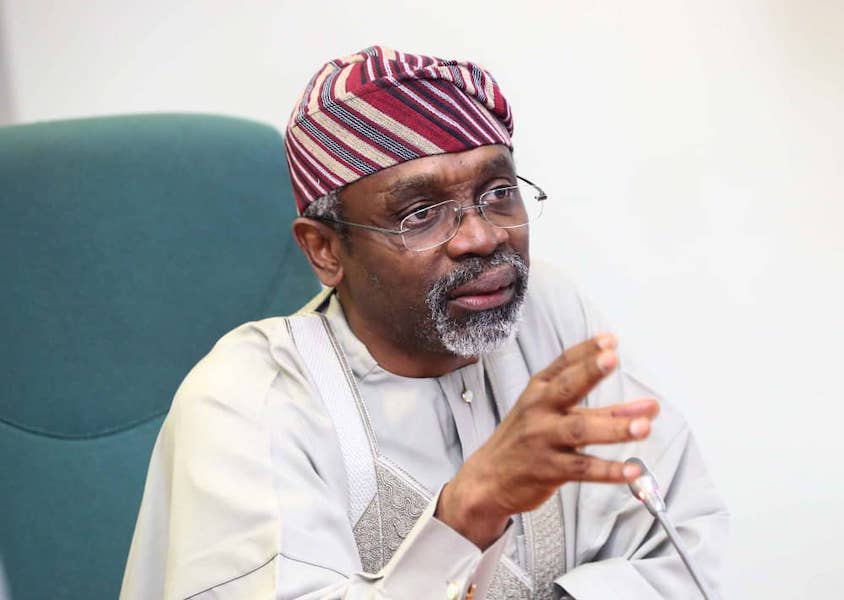The Speaker claims that folks all over the world have turned into broadcasters and publishers capable of influencing many people’s ideas from the privacy of their own homes.
By Omotayo Olutekunbi
Rep. Femi Gbajabiamila, the Speaker of the House of Representatives, has warned Nigerians against propagating fake news, citing its negative consequences on nation-building.
On Thursday, Gbajabiamila provided the advice at the House of Representatives Committee on Information, National Orientation, Ethics, and Values’ two-day National Conference on Information in Abuja.
The speaker also urged country leaders and citizens to resist fake news in order to maintain the country’s unity.
He said that technological advances have enabled acquiring and disseminating knowledge cheaper and faster than it has ever been in human history.
Citizens all around the world, he claims, have evolved into broadcasters and publishers capable of swaying the opinions of many from the privacy of their enclaves.
“Nigeria is with diverse cultures and religions, still working towards achieving a more perfect union, hate speech and other forms of misinformation and disinformation can quickly have a devastating real-world effect.
“Therefore, countering misinformation by whatever proper and legal means available is not a theoretical question but a responsibility that goes to the heart of our ability to continue to exist as one nation in peace, unity and prosperity.
“Let us all be aware that in trying to prevent the worst consequences of misinformation and hate speech, there is a danger of going too far in ways that smother the marketplace of ideas and deprive citizens of their free speech rights.
“That would be most unfortunate, and as leaders and government policymakers, we must avoid that outcome by all means,” he said.
He added, “To do that, we must also focus on building legal systems and protocols that support free expression and robust public debate.
”Whilst holding to account those who in service of their narrow interests will seek to subvert our societies and harm our country using choreographed and mischievously curated misinformation.”
The speaker said that information management was central to defeating insecurity and safeguarding the country.
“Our laws, systems and practices, and the policies that guide our strategies for information management were written for a world that no longer exists.
“Unfortunately, from the government to the private sector around the globe, there has been failure to recognise this and reluctance to act to fix the problems it portends.
“This is a grave error for us in Nigeria, a country with a dark and documented history of expensive and deadly conflicts considering the faultiness that exist in our society,” he said.
Gbajabiamila, on the other hand, praised the committee for organizing the meeting and calling the attention of key stakeholders to the need of efficient information management.
Earlier, Chairman of the House Committee on Information, National Orientation, Ethics, and Values, Rep. Olusegun Odebunmi (APC-Oyo), stated that the importance of information management to national development cannot be overstated.
Related posts
Buhari To Inaugurate 7 Legacy Projects
Reviews
Follow Our Activities On Facebook
12 hours ago
19 hours ago
21 hours ago
21 hours ago
1 day ago
SUBSCRIBE
[mc4wp_form id=”2012″]
Top Reads!
#BigBrotherNaija “Level Up” Week 6
Though last Sunday Sunday was meant to be a “no-eviction” day, it came as a shocker when fake housemate, Modella…
Dating in 2022; Situationships Are Not For The Fainthearted
Situationships are defined as that space between a defined relationship and something other than a friendship. It is a romantic…
20 Questions With Dinta Media’s Visual Storyteller, Chimeremogo Nwoke
Dinta Media is not really just a media production brand but we like to see ourselves as a hub for…
How Are Nigeria’s Small Businesses Coping?
The current rising rate of inflation and other burdens against the Nigerian economy speaks to the realities of the times.
Thrifting Is All The Rave Now, Here’s Why
By Amy Adindu The affordable clothing movement has gained global attention and acceptance as we’re all trying to look like…
#BigBrotherNaija “Level Up” Week 2
Week 2 of the highly watched Nigerian TV show kicked off with an early plot twist. On Sunday, Big Brother…
#BlueTunes: Burna Boy, Omah Lay Top Album Picks For July
July was a promising month for music lovers; from Lizzo’s album titled Special and Imagine Dragons’ Mercury, (Acts 1 &…
#BlueTunes Album Picks For June
Gbagada Express – Boj Bolaji Odojukan, popularly known as BOJ, was raised both in England and Nigeria. He shot to…
“A Creative’s Dream” with Jeff Chinonso
On the 26th of June 2022, Jeff Chinonso hosted his first solo art exhibition. The Augmented Reality exhibition themed “A…
Nigerian API-based company Thepeer raises $2.1 million
Tech infrastructure startup Thepeer has raised a $2.1 million seed round according to a report from TechCabal. Thepeer, a Nigerian…
Dika Ofoma, Ugochukwu Onuoha take on grief in Debut Film “The Way Things Happen”
The twenty-minute film focuses on the loss of a loved one, and how grief changes a person.
Nigerian Startups might just be Crippled by a Recently Leaked bill
Over the years there has been talks of amendment on the 2007 Act of the National Information & Technology Agency (NITDA).
Why We Love Kelechi Amadi Obi
The definition of talent is Kelechi Amadi’s iconic story. Imagine a person who studies law in school, gets called to Bar, and leaves it all for something different and unrelated…Painting!

















